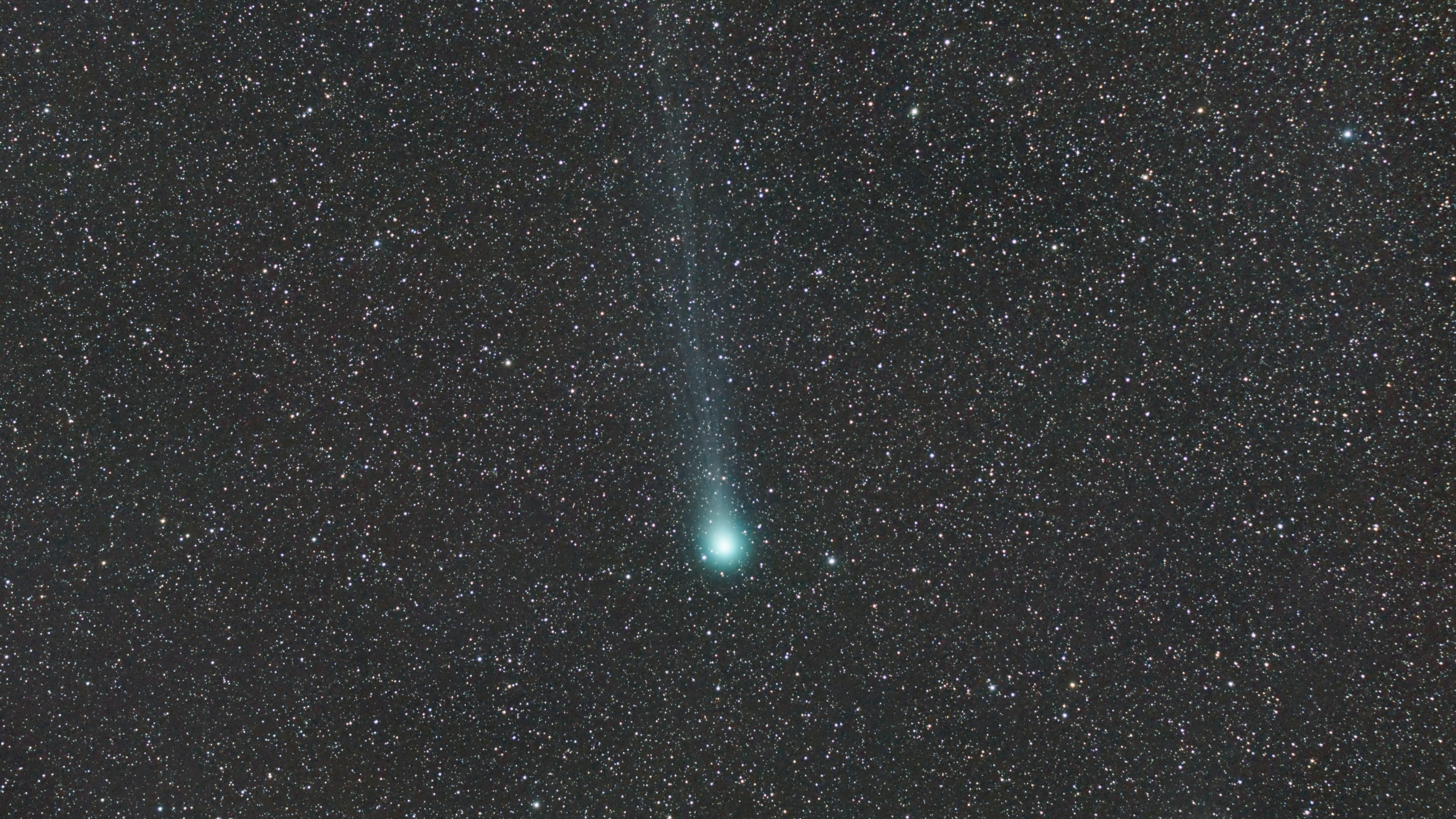There's a comet trailing alcohol in its wake
Punch, drunk galaxy

Sign up for breaking news, reviews, opinion, top tech deals, and more.
You are now subscribed
Your newsletter sign-up was successful
Aptly named comet Lovejoy is releasing large amounts of alcohol into our solar system, according to astronomers at the Paris Observatory.
NASA explained that this is the first time ethyl alcohol, which is found in your favorite adult beverages, has been observed in a comet.
"We found that comet Lovejoy was releasing as much alcohol as in at least 500 bottles of wine every second during its peak activity," said Nicolas Biver of the Paris Observatory, lead author of the paper of the discovery, which was published last week.
The French team made the discovery earlier this year, and found that the comet was emitting 21 different organic molecules in the form of gas, including ethyl alcohol and glycolaldehyde, which is a simple sugar.
Signs of life
While an alcohol- and sugar-spewing comet sounds like the perfect galactic playground for Halloween, there's a much more important element to this discovery
"The finding adds to the evidence that comets could have been a source of the complex organic molecules necessary for the emergence of life," NASA said.
According to scientists, comets are remnants from the earliest creation of our solar system, and the discoveries made from come Lovejoy promotes the theory that, as comets hit Earth billions of years ago, the celestial bodies carried organic molecules that could have helped jumpstart the beginnings of life.
Sign up for breaking news, reviews, opinion, top tech deals, and more.
"The result definitely promotes the idea [that] comets carry very complex chemistry," said NASA's Stefanie Milam, co-author on the paper.
"During the Late Heavy Bombardment about 3.8 billion years ago, when many comets and asteroids were blasting into Earth and we were getting our first oceans, life didn't have to start with just simple molecules like water, carbon monoxide and nitrogen."
The scientists will now try to determine "if the organic material being found in comets came from the primordial cloud that formed the solar system or if it was created later on," according to Paris Observatory's Dominique Bockelée-Morvan, another co-author of the paper.
While research continues, maybe one day we'll be able to grab a glass and ride this booze-y comet.
Top image credit: NASA/Fabrice Noel